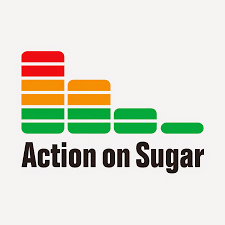- 01843 834160
- [email protected]
- Mon - Fri: 9:00 - 17:00
‘Ready to Drink’ Alcoholic Beverages

Call for ‘Ready to Drink’ Alcoholic Beverages to be Reduced in Sugar and Calories to Help Curb the Obesity Epidemic
- Popular ‘ready to drink’ pre-mixed spirits and cocktails sold in supermarkets are extremely high in hidden sugar and calories, warns NEW survey (the first of its kind)
- Excess alcohol consumption is generally known to be harmful – but certain beverages also contain an outrageous 9 teaspoons of sugar in just 250ml – a double whammy for our health and the NHS
- Nine out of 10 pre-mixed spirits don’t have on-pack sugar information, so consumers are unaware of the very large amounts they are drinking
- Experts unite to criticise previous governments for blatantly ignoring alcoholic drinks in any of the current obesity strategies, and allowing the alcohol industry to police itself[1]
- The Soft Drinks Industry Levy was successful in reducing sugar in drinks like lemonade yet a vodka and lemonade is exempt, which is absurd says critics
- To mark Sugar Awareness Week, Action on Sugar is calling on the new government to ensure that all alcoholic drinks are included in vital public health polices to reduce obesity and ill health and tackle this huge missed opportunity
Click here for Alcohol Data [PDF 458KB]
Click here for Alcohol Survey Report [PDF 1,092KB]
Click here for an Email Guide to Manufacturers [DOC 12KB]
Popular ‘ready to drink’ pre-mixed spirits sold in major UK retailers are unnecessarily high in hidden sugar and calories[2] and should be forced to reformulate immediately to the agreed criterion set by government in the Soft Drinks Industry Levy (SDIL) or pay the fine[3] – according to a NEW product survey by Action on Sugar at Queen Mary University of London to mark Sugar Awareness Week (20th-26th January 2020).
The group of experts warn that sugary alcoholic drinks are contributing to obesity, type 2 diabetes, various cancers, liver damage and tooth decay as consumers are unknowingly drinking large amounts of sugar and calories. Action on Sugar is now urging the government to prove it really is committed to prevention and reducing inequalities, by stepping in and taking control of not only the food and drink industries, but also the alcohol industry.
Key Findings
Action on Sugar surveyed a total of 202[4] ‘ready to drink’ alcoholic beverages sold in-store and online. Out of the 154 products collected in-store, nutrition information on pack was shockingly low making it difficult for consumers to know exactly what they are drinking:
- Only 63 products (41%) in-store had some form of nutrition information on pack
- Only 14 products (9%) had ‘sugar’ information on pack
Due to the lack of information provided on pack (in-store), Action on Sugar commissioned independent laboratory analysis of 21 products (in addition to the information available on pack and on drink manufacturer’s websites), which has exposed for the first time the alarming and unnecessary variation of sugar and calories to the public.[5]
Traditional premixed cocktails
Table 1 showing the 3 highest and 3 lowest in sugar beverages per pack
| Product Name | Pack size (ml) |
ABV (%) | Calories per pack (kcal) | Sugars per pack (g) |
Teaspoons of sugar per pack |
| TGI Fridays Passion Fruit Martini** | 500 | 10.0 | 325 | 49.1 | 12 |
| TGI Fridays Pink Punk Mojito** | 500 | 10.0 | 330 | 46.7 | 12 |
| Tesco Strawberry Daiquiri Alcoholic Frozen Sorbet*** | 250 | 4.0 | 228 | 36 | 9 |
| Funkin Nitro Cocktails Passion Fruit Martini** | 200 | 5.0 | N/A | 16.7 | 4 |
| All Shook Up Espresso Martini** | 250 | 4.5 | N/A | 16.5 | 4 |
| House Of Cocktails Strawberry Daiquiri** | 250 | 4.0 | N/A | 12.6 | 3 |
N/A= information not available
Many drinks in this category were exceedingly high in sugar. Notwithstanding its larger pack size (500ml), TGI Friday’s Passion Fruit Martini has over 12 teaspoons of sugar (49.1g) – the same as drinking nearly two cans of Red Bull![6]
Fruit Based/’Soft’ Mixed Drink
The worst offender in this category was WKD Blue. If you were to drink a large 700ml bottle it would provide a staggering 59g sugar – the same as eating over 4 iced doughnuts in one sitting![7]
Table 2 showing the 3 highest and 3 lowest in sugar beverages per pack
| Product Name | Pack size (ml) |
ABV (%) | Calories per pack (kcal) | Sugars per pack (g) |
Teaspoons of sugar per pack |
| WKD Blue** | 700 | 4.0 | N/A | 59 | 15 |
| VK Blue** | 700 | 4.0 | N/A | 52.4 | 13 |
| Hooch Alcoholic Lemon Brew** | 500 | 4.0 | N/A | 28.9 | 7 |
| Kopparberg Light With Passionfruit* | 250 | 4.0 | 83 | 6.2 | 2 |
| Balans Mandarin Aqua Spritz* | 250 | 4.0 | 60 | 1.5 | 0 |
| Balans Lime Aqua Spritz* | 250 | 4.0 | 58 | 0.5 | 0 |
N/A= information not available
Yet again the sugar content in similar drinks varies considerably – proving reformulation can be achieved. For example, a 250ml can of Breezer Lemon and Elderflower Flavoured Alcoholic Drink has over five teaspoons of sugar (20.8g), compared to Balans Lime Aqua Spritz at 0.5g sugar per 250ml can.
Spirit/liqueur and Mixer (excluding gin)
Table 3 showing the 3 highest and 3 lowest in sugar beverages per pack
| Product Name | Pack size (ml) |
ABV (%) | Calories per pack (kcal) | Sugars per pack (g) |
Teaspoons of sugar per pack |
| Archers Schnapps & Lemonade*** | 250 | 5.4 | 215 | 33 | 8 |
| Malibu Cola** | 250 | 5.0 | N/A | 32.3 | 8 |
| Goslings Dark ‘N Stormy Black Seal Rum and Ginger Beer* | 250 | 4.5 | 198 | 31.3 | 8 |
| ASDA Vodka, Lime & Lemonade** | 250 | 4.0 | N/A | 12 | 3 |
| Tesco Triple Distilled Vodka With Lime and Lemonade** | 250 | 5.0 | 73 | 0 | 0 |
| Jack Daniels & no sugar Cola ** | 330 | 5.0 | N/A | 0 | 0 |
N/A= information not available
The worst offenders in this category have in excess of 30g sugar (8 teaspoons) in a serving – more sugar than nine custard cream biscuits![8]
Interestingly Jack Daniel’s Whiskey and Cola has a larger sized can (i.e. 330ml) than Malibu Cola (250ml), yet is still lower in sugar, due to the higher sugar content of sweetened liqueurs.
The findings also clearly demonstrate that lower sugar products can be produced easily. For example, Asda Vodka, Lime & Lemonade has 12g sugar (3tsp) in a 250ml can, whilst Classic Combinations Vodka Lime and Lemonade has over a teaspoon of sugar extra at 16.2g sugar per 250ml can.
Gin & Mixers
Table 4 showing the 3 highest and 3 lowest in sugar beverages per pack
| Product Name | Pack size |
ABV (%) | Calories per pack (kcal) | Sugars per pack (g) |
Teaspoons of sugar per pack |
| Classic Combinations Pink Gin and Tonic* | 250 | 4.0 | 178 | 27 | 7 |
| Classic Combinations Rhubarb Gin and Ginger Ale* | 250 | 4.0 | 155 | 20.8 | 5 |
| Tanqueray Sevilla Gin and Tonic* | 275 | 6.5 | 190 | 18 | 5 |
| Sipsmith London Dry Gin and Light Tonic* | 250 | 7.3 | 118 | 3.3 | 1 |
| Classic Combination Gin and Diet Tonic* | 250 | 4.0 | 73 | 0 | 0 |
| Alfie Gin & Diet Tonic* | 250 | 4.0 | 60 | 0 | 0 |
The sweetest gin and mixer was Classic Combinations Pink Gin and Tonic, containing a 27g of sugar in a 250ml can – the same sugar content as Coke[9]. This is followed by Classic Combinations Rhubarb Gin and Ginger Ale with over five teaspoons of sugar (20.8g) in a 250ml can.
In comparison, Tanqueray Sevilla Gin and Tonic has a third less sugar at 18g, proving once again that it is possible to make this type of drink with much less sugar. A gin and tonic with diet/light/or low sugar mixers were all 0g sugar per serve, except for Sipsmith London Dry Gin and Light Tonic (3.3g sugar per serve).
A NEW nationwide consumer poll [10] of 2,022 UK adults reveals:
- Nearly 50% (47.4%) of respondents are NOT aware how much sugar is in alcoholic drinks
- A whopping 76.4% of people think alcoholic drinks SHOULD have nutrition information displayed on the bottle / can
- 38.5% of respondents are SOMEWHAT CONCERNED about the level of sugar in alcoholic drinks
- 75% of the public SUPPORT THE CALL for the alcohol industry to reduce sugar in their beverages
Holly Gabriel, Registered Nutritionist at Action on Sugar, says: “This is the first time a survey of this kind has been conducted and the results highlight an immediate need for alcoholic drinks to be included in vital public health policies.
“Customers should be able to purchase better options and reformulating these drinks with less sugar, calories and alcohol is one way to achieve this. Our survey clearly shows that similar drinks can be made with less sugar and calories, yet drink manufacturers are failing to take the appropriate action. Urgent attention is required from the government to ensure that gaps in the law do not contribute to the rise in obesity and related health conditions, as well as alcohol harm.”
Katharine Jenner, Campaign Director at Action on Sugar, based at Queen Mary University of London, says: “‘Gin in a tin’ has become a cultural phenomenon with these types of drinks often consumed ‘on the go’ and without a moment’s consideration to how much sugar and alcohol goes into making them. Even if you did want to know, you can’t make a healthy choice as only one in ten of the products surveyed had enough information available. If consumers knew how much sugar was really in these drinks, would they still happily choose to drink their way to tooth decay, obesity and type 2 diabetes?”
Graham MacGregor, Professor of Cardiovascular Medicine at Queen Mary University of London and Chairman of Action on Sugar, explains: “Sugary alcoholic drinks are a double burden on our health: alcohol causes serious harm, and sugar in these drinks carries the same health risks as sugar in any other food or drink, which costs the NHS billions and shortens lives.
“It is a national scandal that because these drinks contain alcohol, they are not subject to the sugar tax or any form of coherent nutrition labelling. The new government needs to act now by taking control of the alcohol industry and stop them from exploiting vunerable young adults.”
Professor Sir Ian Gilmore, Chair of the Alcohol Health Alliance said: “Consumers have the right to know exactly what they are drinking. This latest research demonstrates – once again – that the current system of the self-regulation of alcohol labelling isn’t working and the industry is not taking its responsibilities seriously. Shoppers who buy alcohol get less information about what’s in their drink than those who buy milk or orange juice; this is simply outrageous.
“We urge the Government to introduce mandatory labelling on alcohol products in order to give all of us easy access to the information needed to make healthier choices.”
Lorraine Tulloch, Programme Lead, Obesity Action Scotland said: “Ready to drink alcoholic beverages may be convenient but this study shows the alarming amount of sugar the industry is adding to these products. These products aren’t required to have a nutrition label on them and we can see very few companies have chosen to provide this information. It is vital that customers be afforded an informed choice when purchasing food or drinks – there is no good reason why this should be any different simply because these drinks contain alcohol. The lack of available on-pack nutrition information, exposed by the survey, shows that voluntary self-regulation by the alcohol industry is not good enough.”
Alison Douglas, chief executive of Alcohol Focus Scotland said, “This research provides another example of the alcohol industry choosing to withhold basic information from consumers. At the moment it’s impossible to make an informed choice. Unlike for other food and drink, there is no legal requirement to provide details on sugar content or ingredients on alcoholic products. We need reliable information directly on bottles and cans where it can usefully inform our decisions.
“Alcohol Focus Scotland welcomes the Scottish Government’s statement that they will consider mandatory action if industry don’t act. Sadly alcohol producers have proven time and time again they won’t do this voluntarily. It’s time they were required by law to do so. The public want and need this information and have a right to be provided with it.”
Dr Saul Konviser from the Dental Wellness Trust charity says:
“It’s truly shocking that these popular ‘ready to drink’ pre-mixed spirits are packed with excessive sugar and hidden calories and it’s no wonder the UK has a tooth decay crisis on its hands. Good oral health is a basic human right yet for some reason, drink manufacturers are being allowed to peddle these unhealthy drinks with limited nutritional information on pack. It’s ludicrous that drinks such as lemonade are subject to the sugar tax yet a vodka and lemonade is exempt. Now is the time for tough government led action to protect this human right.”
Tanya Haffner MD RD, Nutrilicious said: “The alcohol industry and government need to wise up on social responsibility for the good of consumers and their near future pockets! At this point in time, its outrageous that the alcohol industry are happy to get away with supplying hidden high sugar high calorie drinks, in many ready to drink sugary alcoholic beverages. Yet the evidence is crystal clear……this can only contribute to tooth decay, diabetes and obesity. If ethics, legislation and social responsibility cant bring change, perhaps the threat of law suits from those affected will, as it rightly did to the tobacco industry.”
You are able to keep up to date with our articles, news and publications by following us on our social media channels below:












